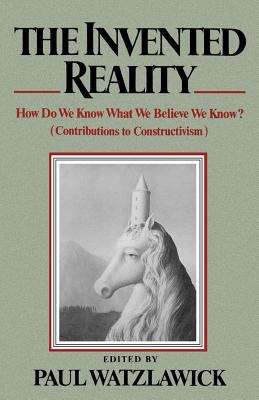The Invented Reality: How Do We Know What We Believe We Know? Contributions to Constructivism
By:
Sign Up Now!
Already a Member? Log In
You must be logged into Bookshare to access this title.
Learn about membership options,
or view our freely available titles.
- Synopsis
-
Common sense suggests that reality can be discovered. In contrast, constructivism postulates that what we call reality is a personal interpretation, a particular way of looking at the world acquired through communication. Reality is, therefore, not discovered, but literally invented.
This book examines how individual, social, scientific, and ideological "realities" are constructed, after which we naively assume they are the "real" realities. Contributors include Ernst von Glaserfeld (known for his cognitive studies with chimpanzees); cybeneticist Heinz von Foerster; David L. Rosenhan (author of On Being Sane in Insane Places); microbiologist Francisco J. Varela; and Gabriel Stolzenberg, professor of mathematics at Northeastern University. Paul Watzlawick has contributed commentary, an introduction and an epilogue, and two of the ten essays.
For educated readers, this is the first multidisciplinary presentation of a subject of vital importance to the way we think and live.
- Copyright:
- 1984
Book Details
- Book Quality:
- Excellent
- ISBN-13:
- 9780393333473
- Publisher:
- W. W. Norton & Company, Incorporated
- Date of Addition:
- 09/20/18
- Copyrighted By:
- W. W. Norton & Company, Incorporated
- Adult content:
- No
- Language:
- English
- Has Image Descriptions:
- No
- Categories:
- Nonfiction, Philosophy
- Submitted By:
- 170
- Proofread By:
- 170
- Usage Restrictions:
- This is a copyrighted book.
